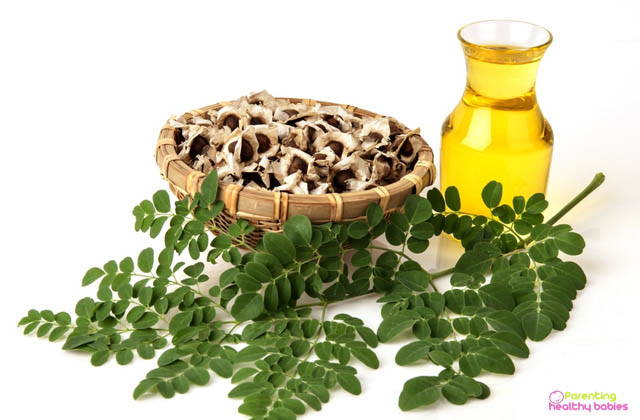
The apparent health benefits of this bee pollen were first discovered by the beekeepers as they started setting traps at the foot of the hives to gather the pollen in trays. Then these bee pollens were made into capsules or tablets and also sold as raw granules.
It is being found out that bee pollens are rich in concentrated proteins, carbohydrates, fats, trace vitamins, essential minerals, all the B-vitamins (except for B-12) amino acids and enzymes. In a single phrase bee pollen can be described as “nutritional insurance policy” as all the essential nutrients are available in minuscule amount. Feeding your child with bee pollen will make sure that he/she gets all the essential nutrients that you might just miss out on a day’s diet. However, certain precautionary measures needed to be taken before you decide to feed bee pollen to your child on a regular basis.
Benefits of Bee Pollen in Children
Naturally bee pollens are rich in plant chemicals like quercetin. This antioxidant compounds is known to work against allergies in kids like an antihistamine. Histamine triggers allergic reaction among children. The linings of the respiratory passage of your child have mast cells containing tiny sacs of pre-formed histamine and that tend to break-open while coming in contact with any allergy-provoking agent.
The quercetin , found in the bee pollens, keeps the packets from breaking open. It is true that most anti-allergic medicines also do the same but they do it while slowing down your child’s nervous system. So while your kid is under anti-allergic medication then he/she feels sleepy and lacks energy most of the time. However, bee pollen being a natural remedy of similar sort, do not actually dull the nervous system of your child and there is in fact no better source of quercetin than the pollen itself.
Is it safe?
The allergy fighting ability of bee pollen in your child is limited by the extent to which your child himself/herself is allergic to the pollens. For instance if you decide on feeding your child with New Zealand Bee Pollen gathered from the Manuka bushes while your child is allergic to, suppose say ragweed in Nebraska, then there is no harm This is because of the fact that in the above mentioned hypothetical case, the New Zealand Bee Pollen does not contain the pollen which your child is allergic to. However, you have to ascertain whether or not your child is allergic to any pollens or whether he/she needs to depend on bee pollen for allergic remedies.
The allergic reactions include redness, itching, hives, swelling, shortness of breath and even in some cases it can lead to anaphylactic shock. If your child is already suffering from medical conditions like asthma or perhaps blood or liver related issues, then under any circumstances you must not give your child any sort of naturally extracted or even commercially packaged bee pollen.
It is advisable to seek the help of the paediatric consultant to ascertain the servings and the nature of bee pollen to given to your child. You must test for bee pollen allergies before giving them to your child and if your little one shows the slightest hint of allergic reactions then you must ideally stop at once.
If your child is above 7 years old then a simple test run at home can determine whether he/she is allergic to bee pollens or not. First, at the beginning, you should place single bee pollen under your child’s tongue and ask him/her whether he/she is feeling any sort of discomfort. If your child confirms that he/she is feeling some irritation then you must stop and shouldn’t ideally consider giving him/her bee pollen ever. Otherwise you can continue the test with two and three and if at the end of that also he/she doesn’t state any sort of discomfort then you can feed your child with one teaspoon of the same per day.
Final Words
It is not only that, bee pollens protect your child from allergic reactions but also at the same time it contains the complete package of all the essential nutrients and thus can be considered as a super food for children. However, if your child is allergic to bee pollens you mustn’t be disheartened as there are other natural resources like raw onion, lemon zest and apple peels which are rich in quercetin and can protect your child from allergies.












